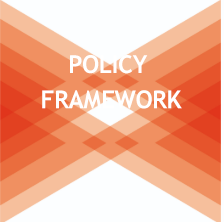Corrections play the central role in the process of policies. Correctional agencies produce concise and clear directive to officials under the accreditation standards, liability and law. In the modern operations of corrections, the written policy framework is an integral component.
It ensures supervision of staff, supporting defense and training for them. The policy process is linked to the legitimate correctional outcome.
Politics and correction are related particularly when there is an impact of local level of global level on the society. This is attributable to policy framework.
Corrections undertake different issues related to prison, crime and mistreatment. Political framework is devised by the correction that impacts public face. Under the supervision of public officials, corrections play their role to tackle societal issues. Corrections are supportive of federal programs and build the effectiveness of a policy.
Federal court impact on correction is somewhat proved or not, it is based on different circumstances. In the different form of constitutional standards, the role of policies is useful. For instance, in 2005, a federal court of California failed to meet the inmate medical care standards under constitutional level. Not always impact of federal court on correction is justified.
The policy framework devises the conservative approach. It prefers the societal order that exists, and it believes that political and economic inequalities in the societies are justified, whereas liberal approach believes that government should only intervene in public life at a smaller level.
Conservative view undertakes the social programs and use of tax dollars while the liberal approach is opposite to the government initiative of income redistribution.
Correctional administrators work with diligence, and they usually face challenges of typical inmates. It is also essential for development of policy framework.
In the case of mentally ill inmates, correctional administrators have to use more supervision to produce their well being in their premises, increase specialized care, reduce stress and provide them psychological care while assisting with their behavior.
Policy Framework and Justice System
Every state has different juvenile and adult justice system. Former deals with the developmentally different persons form adults because their behavior is malleable. In the adult justice system, open access to the criminal record pertains and, the court proceedings are also open to the public.
In the juvenile justice system, a psychological casework approach is needed to assess the history of youth while defendants under the adult system are to follow trial under the legal facts.
Juvenile court plays an extensive role in the making of policy. Probation department states the importance of the accountability as it is central and the judge can raise a voice to affect policy decision either in its favor or against it.
Juvenile court judge implements the processes to educate public about juvenile choices of the justice system, its operations, and objectives. This is the role of policy framework that defines the basis of justice.
At the start of the nineteenth century, a law was created that had separated juvenile and adult justice systems.
Juvenile court system tackle case of individuals under 18 years and this system is hundred years old. New York and Chicago are two cities which housed juvenile offenders isolated from those of adult offenders.
The personnel responsible for the decision-making process of a juvenile must be aware of child conditions, and behavior.
These issues undertake, crime prevention, child rights, alternative measures to deal children and social mediation. These steps improve the well-being of the child and provide the significance of policy framework.
Structural functionalism and delinquency theories are about the breakdown of social processes. Anomie theory coins for the absence of societal regulation and about delinquency of individual adolescents.
Subcultural theory talks about children frustration. Differential opportunity theory, control theory, and social disorganization theory are about delinquency and crime under the social control that is based on the absence of social bonding.

